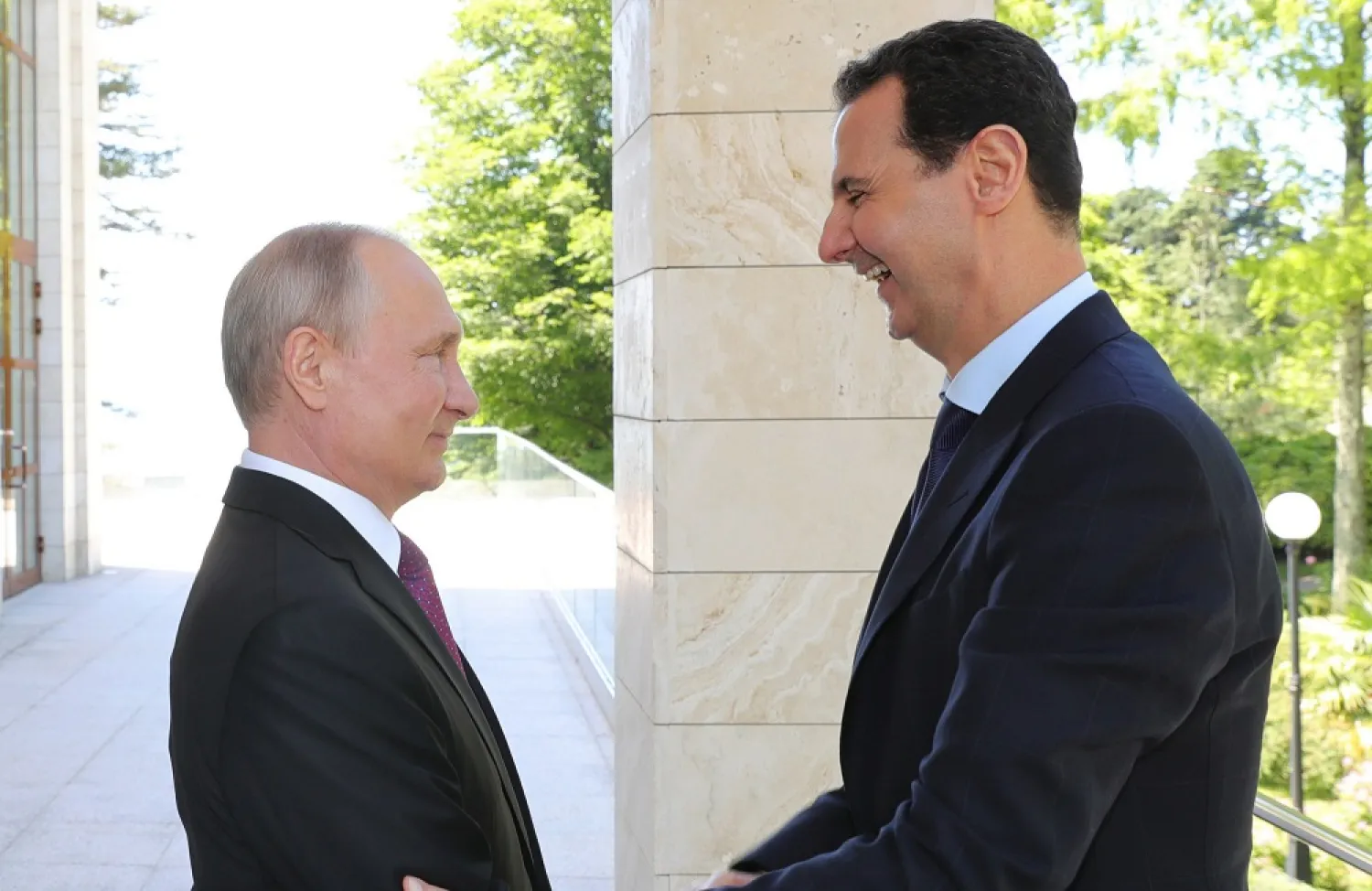A recent article published by a Russian publication revealed for the first time that the Syrian leadership had pleaded with Moscow back in 2013 to save it from imminent collapse.
The revelation was made by Rami al-Shaer in an article published by Russia’s Zavtra newspaper.
The development raises questions as to why Russia chose this moment to reveal the plea. More importantly, it raises questions over why Moscow took two years to respond to it. Russia intervened militarily in the conflict in 2015, turning the tide in the regime’s favor.
The letter, dated November 24, 2013, read: “We have turned over the chemical weapons to the international community, trusting that Russia will provide the necessary alternatives to the terrorist aggression against our nation.”
“The situation, however, points to potential sudden collapse in just a few days after we lost yesterday five towns in al-Ghouta and gunmen are now just 3 kilometers away from Damascus International Airport,” it added, acknowledging that the regime had run out of man and fire power.
“Direct military intervention from Russia is therefore very urgent, otherwise Syria and the civilized world will fall in the hands of terrorist Islamists,” it stressed.
In remarks to Asharq Al-Awsat, Shaer confirmed the authenticity of the letter, saying many others were sent through various channels that were set up by the regime.
But why was the letter revealed now? Notably, Zavtra chose “Will Damascus Seek to Normalize Relations with Israel?” as a headline for its revealing article.
The choice of title reveals Moscow’s growing frustration with Syrian president Bashar Assad’s behavior. The frustration, said the article, is no longer limited to the regime’s attempts to obstruct Russia’s efforts to push forward the work of the Constitutional Committee in line with the implementation of United Nations Security Council resolution 2254.
The frustration has gone beyond this point. The regime is banking on the international community’s lack of alternatives to the committee, is still pursuing a military solution to resolve the conflict, and most importantly, is considering “other roles or deals, such as leaning toward normalizing relations with Israel.”
Trusted Russian sources said that “manipulating the normalization file behind Russia’s back is very dangerous because it represents a readiness to abandon everything, including the firm stances that Moscow has defended.”
This issue is one of the reasons why the regime’s plea was revealed at this time. Moscow is deliberately reminding the regime of the situation it was in before its intervened to save it.
Moreover, the upcoming elections in Syria are another point of contention. Russia wants the polls to go ahead to avoid any possible constitutional vacuum that would have harmful consequences. It does not want its position to be interpreted as approval of what the regime’s propaganda machine is portraying as the inevitability of the “victorious” Assad remaining power.
Another question remains: Why did Moscow wait two years before intervening in Syria? How did it deal with the plea when it was first made?
Zavtra said: “Many are wondering about the role Russia is playing during such critical times for the Syrian people.”
Shaer said that Moscow’s wait does not mean that it did not rush to provide valuable logistic and military support to the regime, such as opening weapons ad supply routes, sending military experts and providing intelligence information.
Another cause for pause for Russia was the military presence of Iran, Turkey and the United States at the time the regime made its plea. “Russia could not have embarked on an adventure without weighing the consequences. The situation demanded vast coordination with the forces on the ground, meaning opening up channels of communication with Turkey and Iran and coordination with the Americans to avoid any possible clash on the ground. Furthermore, Moscow had to resort to international laws in order to obtain Damascus’ approval for direct military intervention,” explained Shaer.
Moscow waited when the situation in Syria reached a critical phase, whereby “Damascus was truly threatened and surrounded. Signs at the time showed that the battles were on the verge of reaching the capital, meaning the eruption of a bloody confrontation between the Fourth Armored Division, which would have led to catastrophic civilian casualties,” he continued. “That is when Moscow chose to intervene militarily to save Damascus and other Syrian cities.”
Separately, Russian media aired a report about Russia’s field trials of its Orion drone in Syria. The aircraft were also used to attack positions of armed groups.
The report said that 17 positions, whose locations were not disclosed, were targeted. It also did not reveal when the operations were carried out.
This is the first time that Moscow reveals that it had carried out trials of modern aircraft in Syria. The Orion was manufactured at the Sukhoi factories and officially entered service in September 2019.
One official confirmed the trial, saying the aircraft showed high precision in striking targets.












